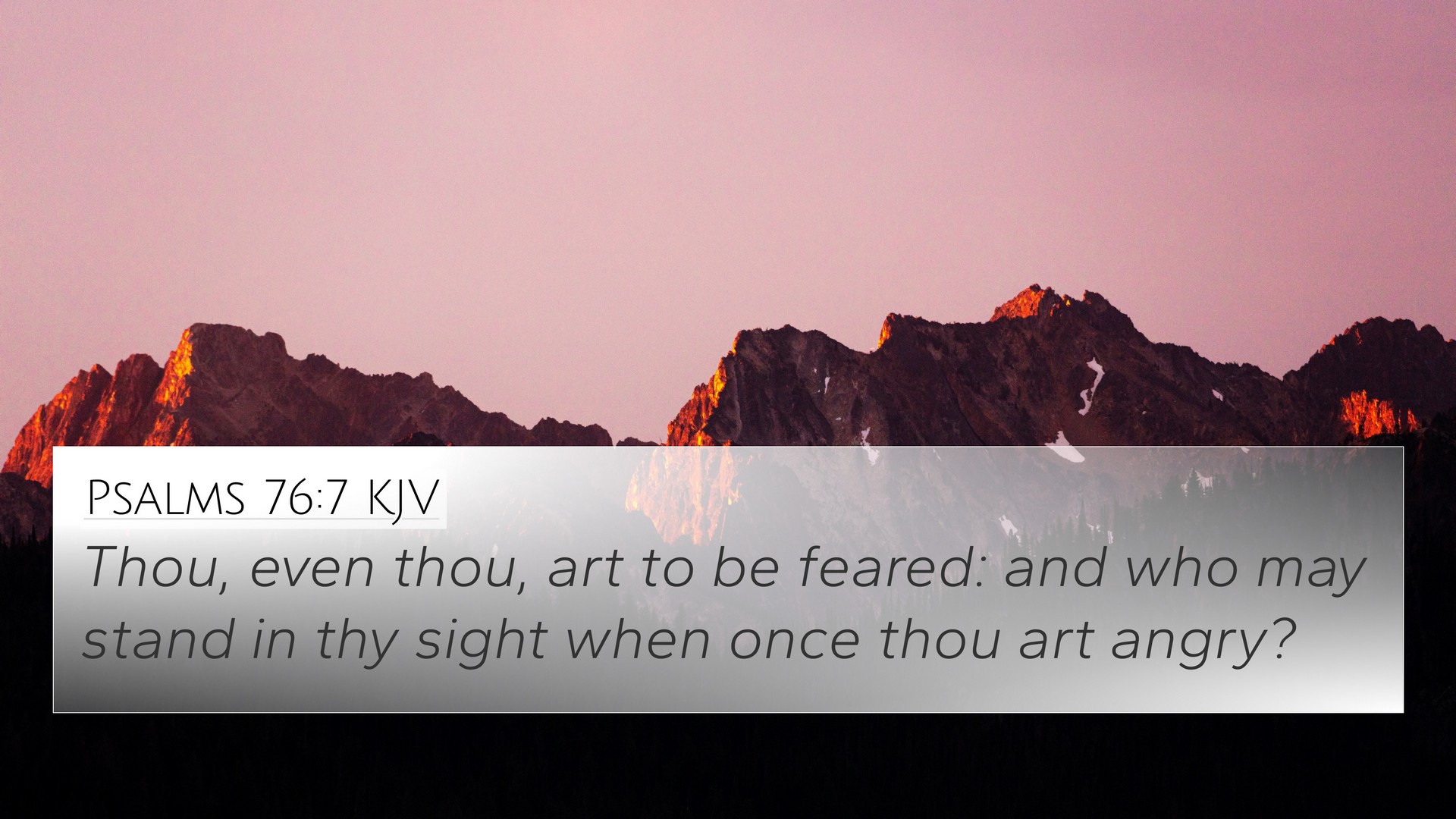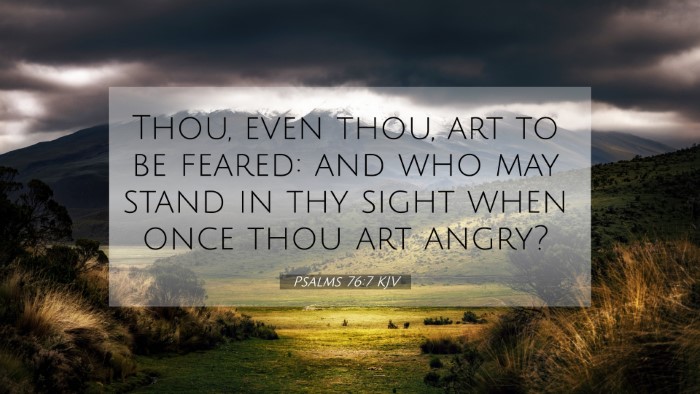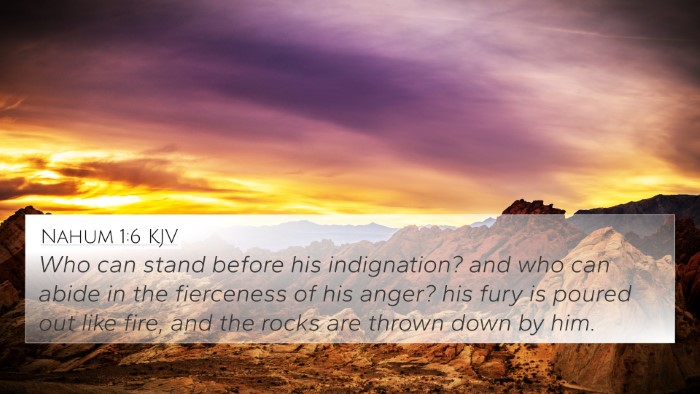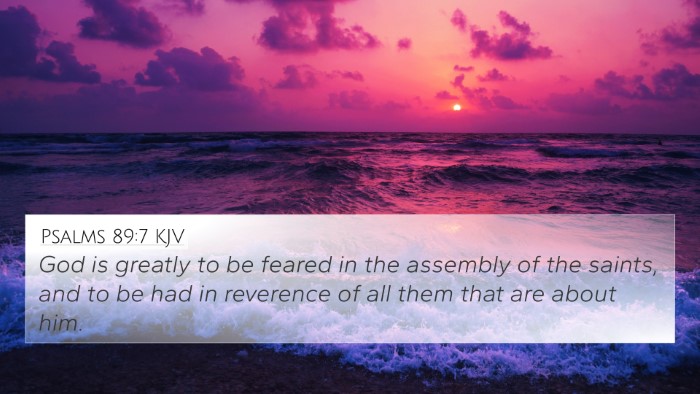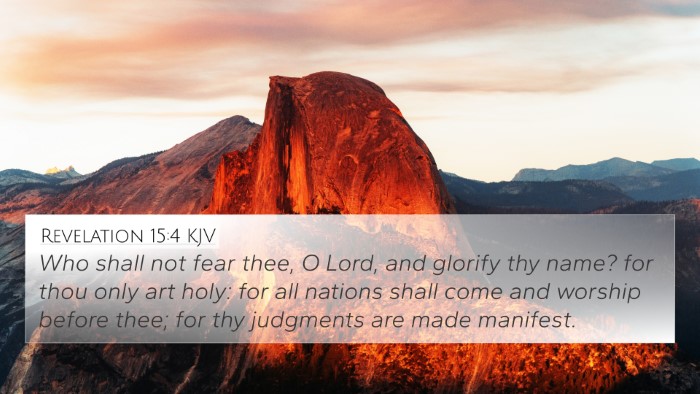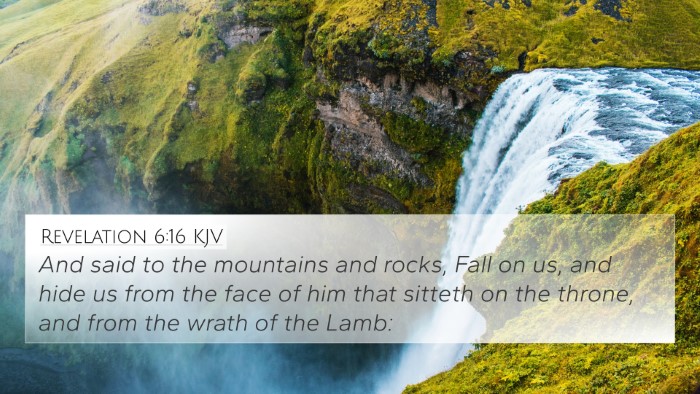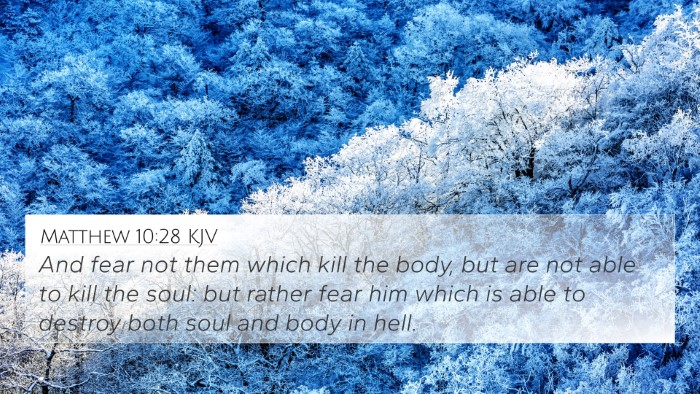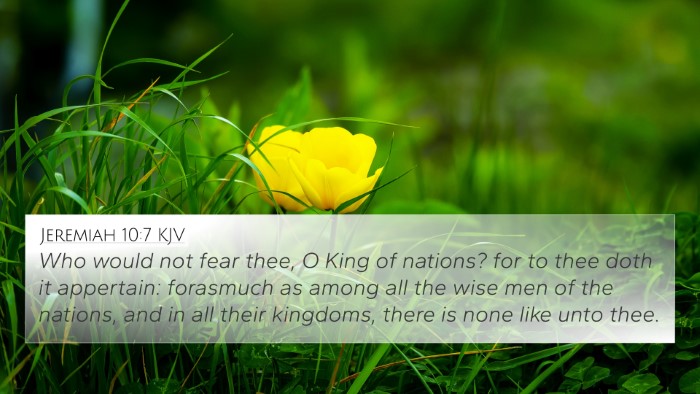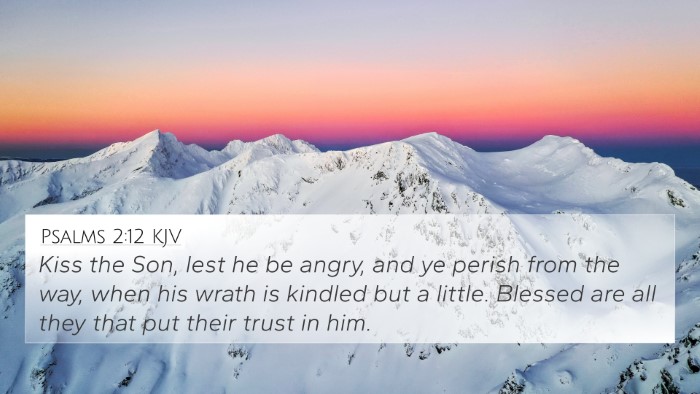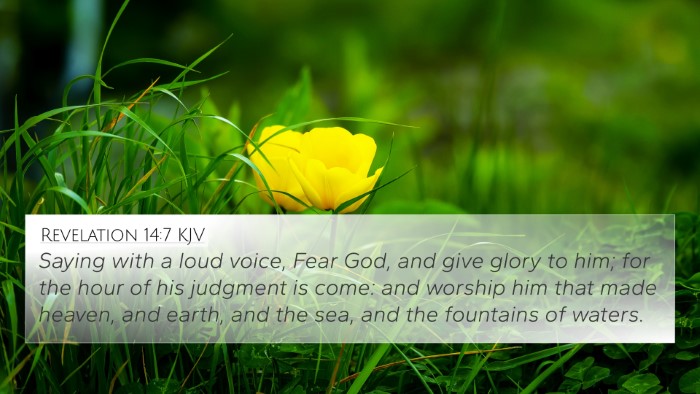Understanding Psalms 76:7
Psalms 76:7 states, "Thou, even thou, art to be feared: and who may stand in thy sight when once thou art angry." This verse reflects the profound reverence and awe that one must have towards God, particularly in light of His power and justice.
Commentary Insights
Commentators like Matthew Henry, Albert Barnes, and Adam Clarke express that this verse highlights God’s sovereignty and the reverence that His authority commands. Here are several key insights distilled from these public domain commentaries:
- Divine Authority: Henry emphasizes that God's fearful presence should instill a sense of awe that prevents mankind from standing against Him when roused by anger or judgment.
- Righteousness of Anger: According to Barnes, the verse reminds readers that God's anger is righteous and justified, making it imperative for humanity to seek His mercy.
- Fear as a Response: Clarke points out that the fear of God expressed here is not merely dread; it is a recognition of God’s absolute authority and power over creation.
- Call to Humility: The verse serves as a call to humility, reminding us that in the face of God's judgment, no person can claim righteousness on their own.
Bible Verse Cross-References
To gain a deeper understanding of Psalms 76:7, it is beneficial to consider the following related verses:
- Hebrews 10:31: "It is a fearful thing to fall into the hands of the living God." This verse reinforces the fear associated with God's judgment.
- Psalm 89:7: "God is greatly to be feared in the assembly of the saints, and to be had in reverence of all them that are about him." This parallels the sacred fear of God’s presence.
- Isaiah 66:2: "For all those things hath mine hand made, and all those things have been, saith the Lord: but to this man will I look, even to him that is poor and of a contrite spirit, and trembleth at my word." Emphasizes a humble heart towards God's word.
- Romans 3:19: "Now we know that what things soever the law saith, it saith to them who are under the law: that every mouth may be stopped, and all the world may become guilty before God." Highlights human accountability before God’s law.
- Proverbs 9:10: "The fear of the Lord is the beginning of wisdom: and the knowledge of the holy is understanding." Points to the essential nature of fearing God as foundational to wisdom.
- Psalms 36:1: "The transgression of the wicked saith within my heart, that there is no fear of God before his eyes." Underscores the importance of recognizing God’s fear.
- Philippians 2:10-11: "That at the name of Jesus every knee should bow, of things in heaven, and things in earth, and things under the earth; and that every tongue should confess that Jesus Christ is Lord, to the glory of God the Father." This shows that all will ultimately recognize God’s authority.
- Micah 6:8: "He hath shewed thee, O man, what is good; and what doth the Lord require of thee, but to do justly, and to love mercy, and to walk humbly with thy God?" This aligns with the call for humility in the presence of God.
Thematic Bible Verse Connections
The connections between Bible verses, particularly those that elucidate the themes of divine authority and human humility, can be explored in further detail:
- Many Old Testament passages echo the idea of God's fear, particularly in the prophetic books.
- Links between the teachings of Jesus and the Old Testament emphasize the continuation of these themes, particularly through His teachings on humility and reverence towards God.
- Exploring New Testament letters reveals the Pauline emphasis on grace and humility in light of God's holiness, correlating with the fearsomeness depicted in Psalms.
Tools for Bible Cross-Referencing
Many resources are available for deeper Bible study to explore cross-references:
- Bible Concordance: A reference tool that lists words and their occurrences, assisting in cross-referencing biblical texts.
- Bible Cross-Reference Guide: Handy guides that simplify the process of finding related scriptures.
- Cross-Reference Bible Study: Methods for studying the scriptures by exploring thematic connections between verses.
- Bible Reference Resources: Various tools and aids that help deepen one's understanding of scripture through connections.
Conclusion
Psalms 76:7 serves as a profound reminder of God’s might and the reverence He demands. Understanding this verse through cross-references enhances our comprehension of the threads that bind the Biblical narrative, enlightening our faith and guiding our life in accordance with His will.
As you explore this verse and its connections, remember that the essence of God's fear is not just about dread, but an awe that leads to humility and a righteous life. Utilize the tools of cross-referencing to deepen your study and understanding of the scriptures.
